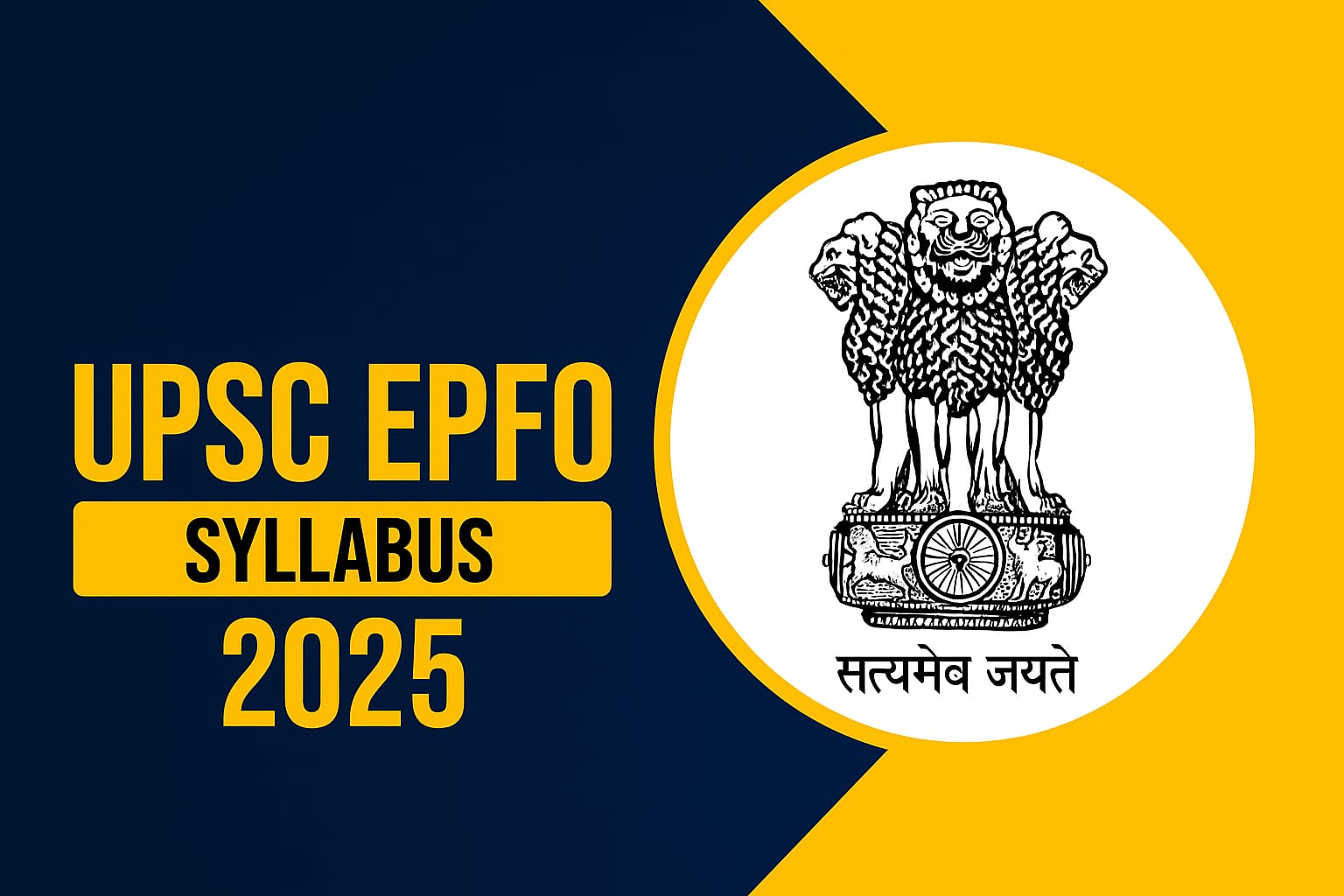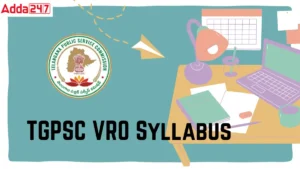UPSC APFC Syllabus 2025 must be thoroughly understood by every candidate aiming to crack this prestigious exam. The Union Public Service Commission (UPSC) has recently released a short notification announcing 74 vacancies for the post of Assistant Provident Fund Commissioner (APFC) under the Employees ‘ Provident Fund Organisation (EPFO).
As the competition is expected to be intense, knowing the updated UPSC APFC syllabus and exam pattern is the first step toward a strategic preparation plan. In this article, we have provided the complete UPSC APFC Syllabus 2025 along with the exam structure to guide aspirants in the right.
UPSC APFC Syllabus 2025
Candidates aiming for the UPSC APFC 2025 exam must be well-versed with the detailed syllabus and exam pattern to prepare strategically. The recruitment drive is conducted by the Union Public Service Commission to select eligible candidates for the post of Assistant Provident Fund Commissioner in the Employees Provident Fund Organisation (EPFC). The written exam is followed by an interview round. Check the key highlights below:
| UPSC APFC Exam 2025 Overview | |
| Particulars | Details |
| Conducting Body | Union Public Service Commission (UPSC) |
| Post Name | Assistant Provident Fund Commission (APFC) |
| Organisation | Employees’ provident Fund Organisation (EPFO) |
| Category | Syllabus |
| Exam Level | Central Government |
| Total Vacancies | 74 |
| Mode of Exam | Offline (pen-and-paper based) |
| Exam Language | English & Hindi |
| Exam Duration | 2 Hours |
| Negative Marking | Yes,1/3rd mark deducted for every wrong answer |
| Official Website | www.upsc.gov.in |
Explore Now for UPSC EPFO Online Course
UPSC APFC Exam Pattern 2025
The UPSC APFC exam is conducted in an objective format, where each question is multiple choice. The paper is designed to test not just knowledge but also conceptual clarity and mental ability. Here’s what aspirants need to know:
- The exam will be of 2 hours duration
- It will be conducted in Bilingual mode – English & Hindi
- There will be negative marking of 1/3rd marks for each wrong answer.
Detailed APFO Syllabus Overview
| Sections | Subject Name | Marks | Duration of Test |
| Section A | General English | 300 Marks | 2 Hours |
| Section B | Indian Culture, Heritage and Freedom Movement | ||
| Population, Development, and Globalization | |||
| Governance and Constitution of India | |||
| Present Trends in Indian Economy | |||
| Accounting and Auditing, Industrial Relations, Labour Laws, Insurance | |||
| Basic knowledge of computer applications, General Science | |||
| Elementary Mathematics, Statistics, and General Mental Ability | |||
| Social Security in India |
UPSC APFC Syllabus 2025
To crack the UPSC APFC exam, knowing the syllabus is the first step. The exam tests your understanding of English, General Studies, Indian Economy, Labour Laws, Auditing, and more. Here’s a subject-wise breakdown to help you plan your preparation effectively.
| General English | |
|
|
| General Science | |
|
|
| Social Security | |
|
|
| Industrial Relation and Labour Laws and Insurance | |
|
|
| Accountancy and Auditing | |
|
|
| Basic Knowledge of Computer Applications | |
|
|
| Quantitative Aptitude and Statistics | |
|
|
| General Mental Ability | |
|
|
| Indian Culture, Heritage and Freedom Movement | |
|
|
| Governance and Constitution of India | |
|
|
| Indian Economy | |
|
|
| Current Events and Population, development and Globalisation | |
|
|
UPSC EPFO Interview Syllabus (EO/AO & APFC)
Based on trends from previous years and expert inputs, the interview generally tests candidates in the following four key areas:
1. Personality & Communication Skills
2. Understanding of Job Role (EPFO-related Topics)
3. Current Affairs & Social–Economic Issues
4. Background-Based Questions (Education/Work Experience)
UPSC EPFO APFC Interview 2025
The interview is the second stage of the selection process and carries a total of 100 marks. To qualify, candidates must score more than the official UPSC APFC interview cut-off. As per the notification, the interview holds 25% weightage in the final selection. The final merit list is prepared by combining both the written exam marks and the interview scores.
Preparation Tips for UPSC APFC 2025
- Go through the complete syllabus carefully and create short, easy-to-revise notes.
- Build strong conceptual understanding, especially in Economy, Governance, and Labour Laws.
- Read newspapers daily and refer to Drishti IAS Current Affairs for regular updates.
- Practice online mock tests and solve previous year papers to improve speed and accuracy.
- Revise regularly and follow a steady, disciplined study routine.
| Check UPSC EPFO Related Links | |
| UPSC EPFO Notification 2025 | UPSC EPFO Previous Year Papers |
| UPSC EPFO 2025 Syllabus and New Exam Pattern, Download Official PDF |
|




 Rajasthan LDC Syllabus and Exam Pattern ...
Rajasthan LDC Syllabus and Exam Pattern ...
 Punjab Excise Inspector Syllabus 2026, C...
Punjab Excise Inspector Syllabus 2026, C...
 TSPSC VRO Syllabus and Exam Pattern 2026...
TSPSC VRO Syllabus and Exam Pattern 2026...




 Adda247 Job portal has complete information about all Sarkari Jobs and Naukri Alerts, its latest recruitment notifications, from all state and national level jobs and their updates.
Adda247 Job portal has complete information about all Sarkari Jobs and Naukri Alerts, its latest recruitment notifications, from all state and national level jobs and their updates.




